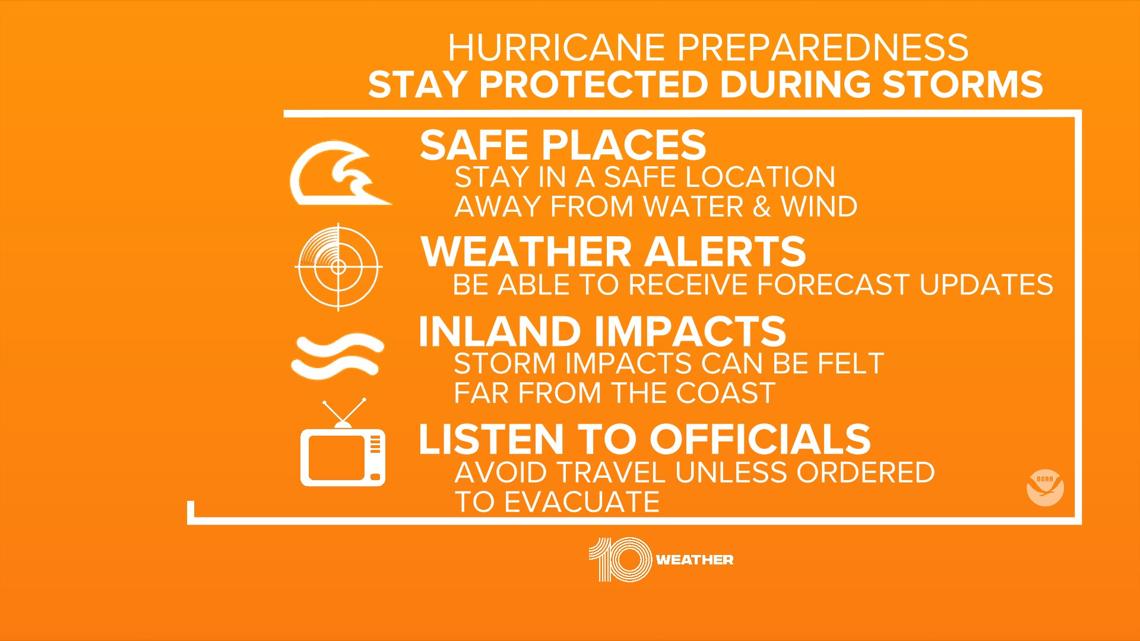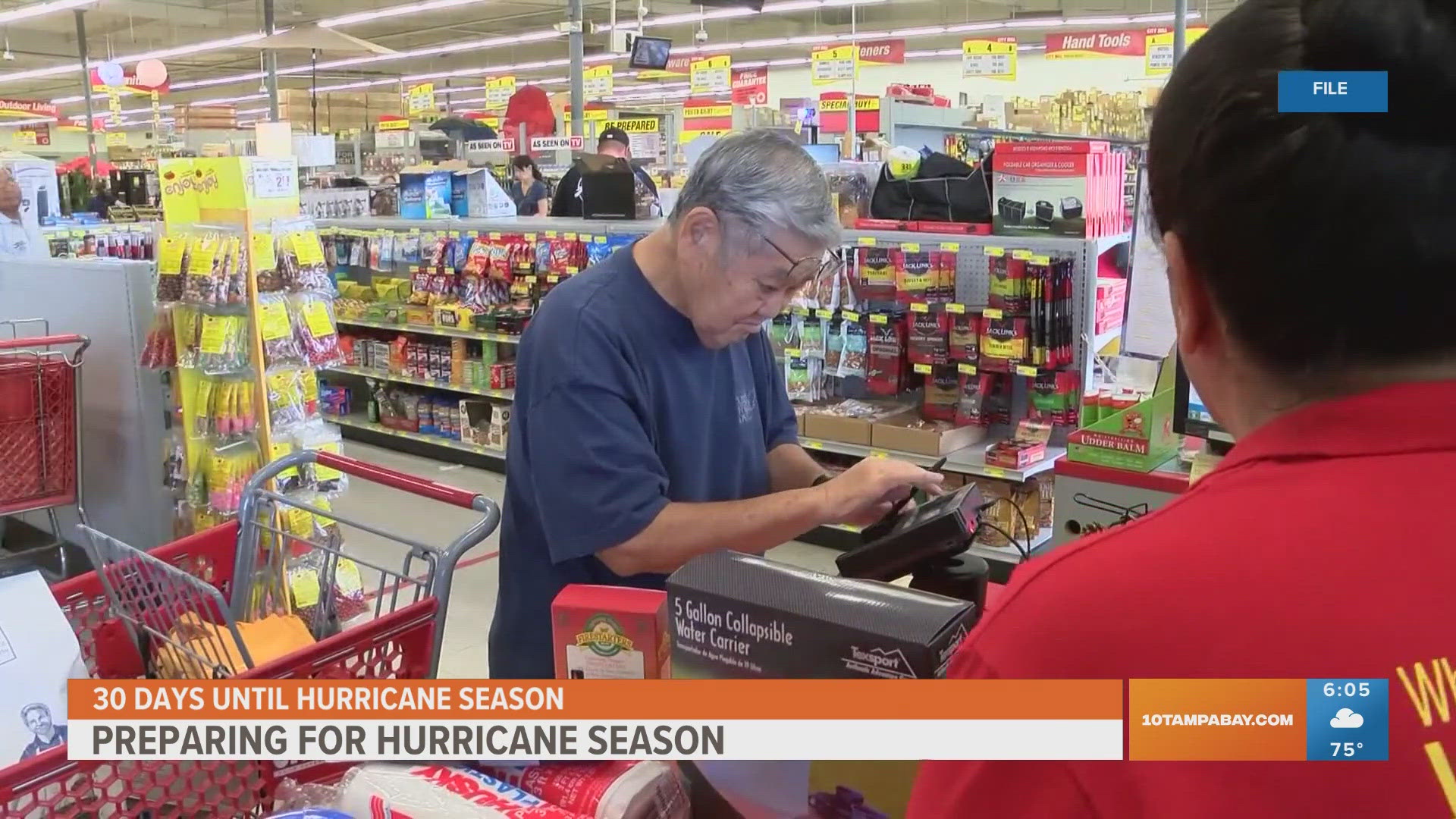ST. PETERSBURG, Fla. — The official start of hurricane season is less than a month away and forecasters are already predicting a busy season full of named storms.
It's too soon to tell if Florida or the Tampa Bay area will be affected, but it only takes one storm to cause a lot of damage to the area.
But there's good news: There's still time to prepare, and the first full week of May is coincidentally dedicated to making sure you know what to do before, during and after a storm.
Whether it's your first hurricane season or you're a seasoned veteran, we've broken down what you should know to help ensure you're informed, prepared and connected.
Sunday, May 5 — Know your risk: Wind & Water
Before any other preparations ahead of hurricane season, the National Oceanic and Atmospheric Association (NOAA) says the first step you should take is figuring out your risk, particularly when it comes to wind and water hazards.
Effects from hurricanes aren't contained to coastal areas and can be felt hundreds of miles inland. Additionally, it doesn't matter how strong the storm is — significant damage can still occur.
So it's important to know if you live in an area prone to flooding and if you're in an evacuation zone. Additionally, now is a good time to determine if your home has any structural weaknesses. Find more information here.
Monday, May 6 — Prepare before hurricane season
It's important to not wait until the last minute to prepare for hurricane season; not only can you avoid unnecessary stress or potential shortages of items but you could save money on essential supplies.
From June 1-14, the first of two tax-free holidays for important hurricane season and disaster preparedness items will happen. The second will happen from Aug. 24-Sept. 6.
In addition to gathering supplies, it's important to have your evacuation plan in place early. Even if you already have one, take a moment to make sure it's still up to date. Find more details and tips here.
Tuesday, May 7 — Understand forecast information
If a storm does come toward Florida or the Tampa Bay area, our 10 Tampa Bay Weather team will be giving you the latest forecast information to best keep you informed.
It's a good idea to familiarize yourself with certain terms forecasters and meteorologists will use while tracking storms and what they mean.
This includes understanding the differences between watches and warnings. Additionally, NOAA says to remember to focus on the potential impacts of the storm, such as storm surge, rather than the size and category. Plus, it's important to understand that deadly hazards will be present outside the forecast cone.
Wednesday, May 8 — Get moving when a storm threatens
If a storm pops up to threaten the Tampa Bay area, it's essential to take action immediately to be ready. Hopefully, you're already prepared with supplies and have a plan in place.
Take steps to protect your home, such as covering windows, securing doors and putting away loose items. Then, make sure you know your options for shelters, especially if you have a pet.
From there, make sure your go-bag is ready, gather medications and supplies, charge your phone and make sure your car is fueled or charged up.
Lend a hand if your neighbors need help and make sure to follow evacuation orders if they're given. Find more information here.
Thursday, May 9 — Stay protected during storms


When a storm impacts the Tampa Bay area, make sure you're in your safe place as far away from water and wind as possible. Stay connected by ensuring you have a way to get weather alerts and forecast updates.
Our free 10 Tampa Bay mobile and streaming apps are a great resource to keep you and your loved ones safe during a storm.
Understand that even if you're inland, you could still be impacted by the storm's effects. Also, listen to emergency officials and don't travel unless you're told to evacuate.
Friday, May 10 — Use caution after storms


Once the storm passes, it doesn't mean the dangerous conditions have gone away with it. According to NOAA, nearly half of the deaths associated with hurricanes come after the storm.
If you evacuated, only return home when you're told by officials it's safe. Stay vigilant of hazards such as downed power lines, damaged buildings and floodwaters.
When cleaning up, make sure you're staying safe and hydrated and using proper safety measures such as wearing gloves.
If you have a portable generator, make sure you're only using it outside and that it's situated more than 20 feet from your home.
Saturday, May 11 — Take action today


Haven't started on your plan or still need to put some things together? Don't wait and take action today to make sure you and your loved ones are safe during any storm or hurricane.

